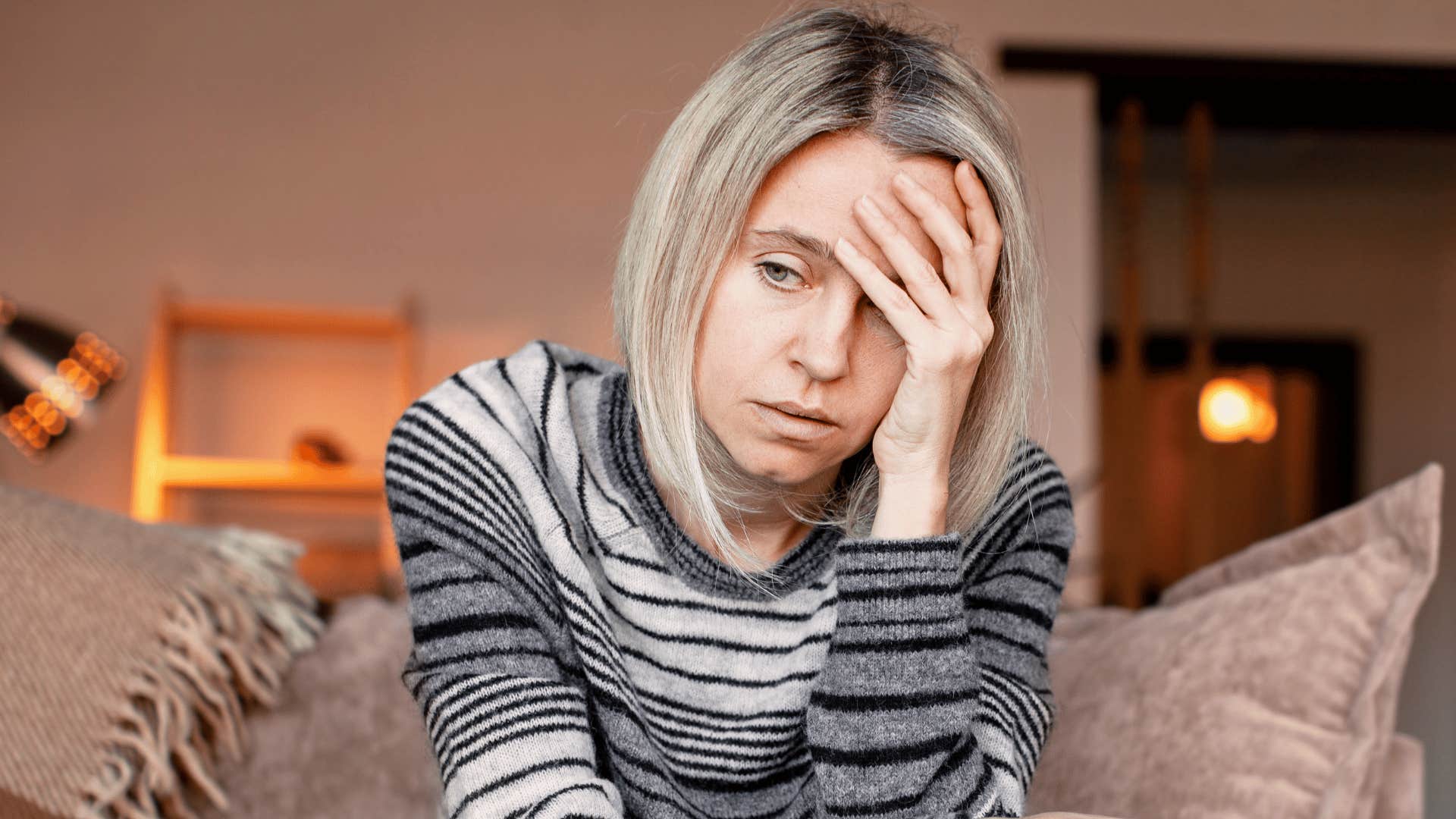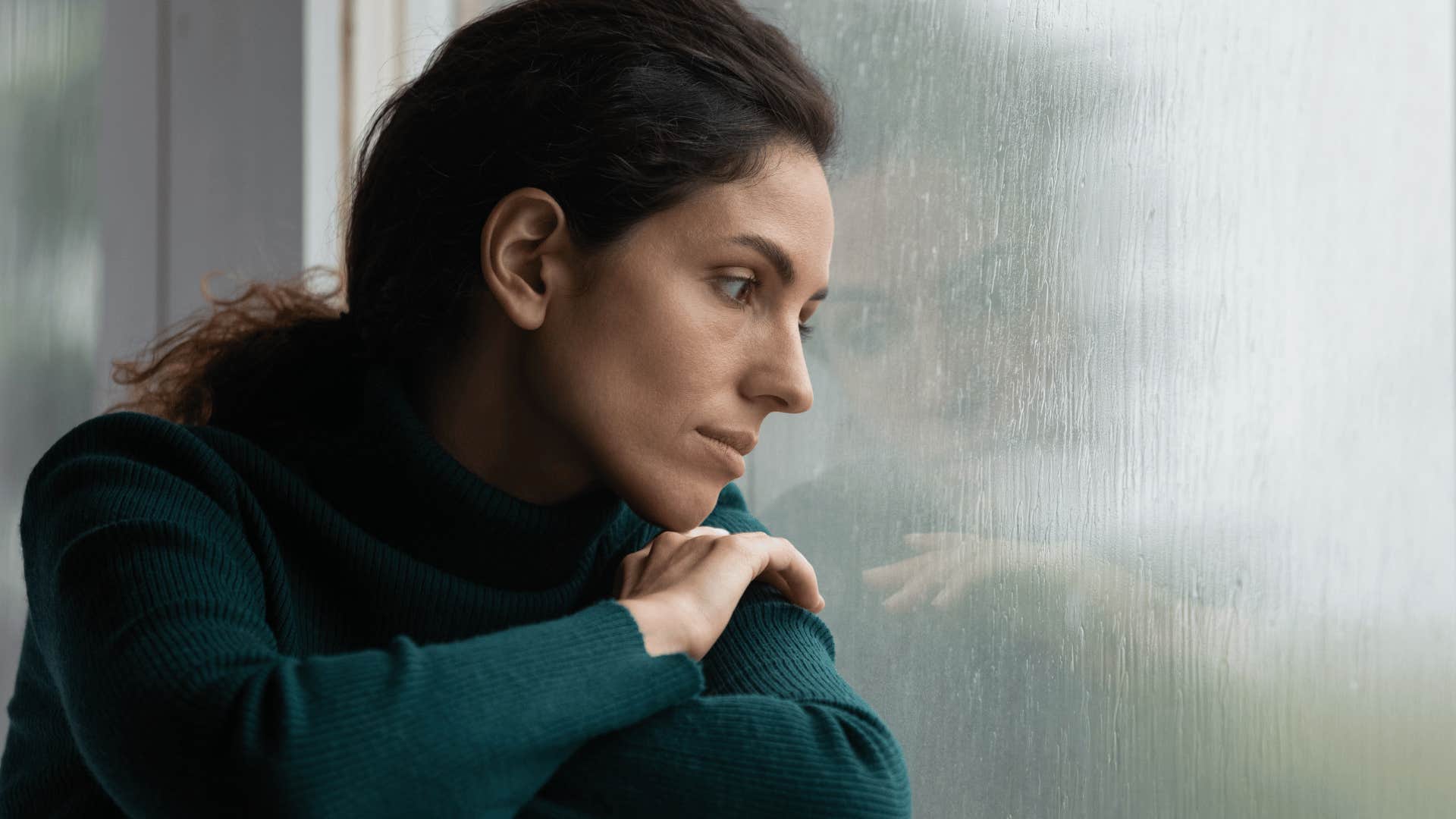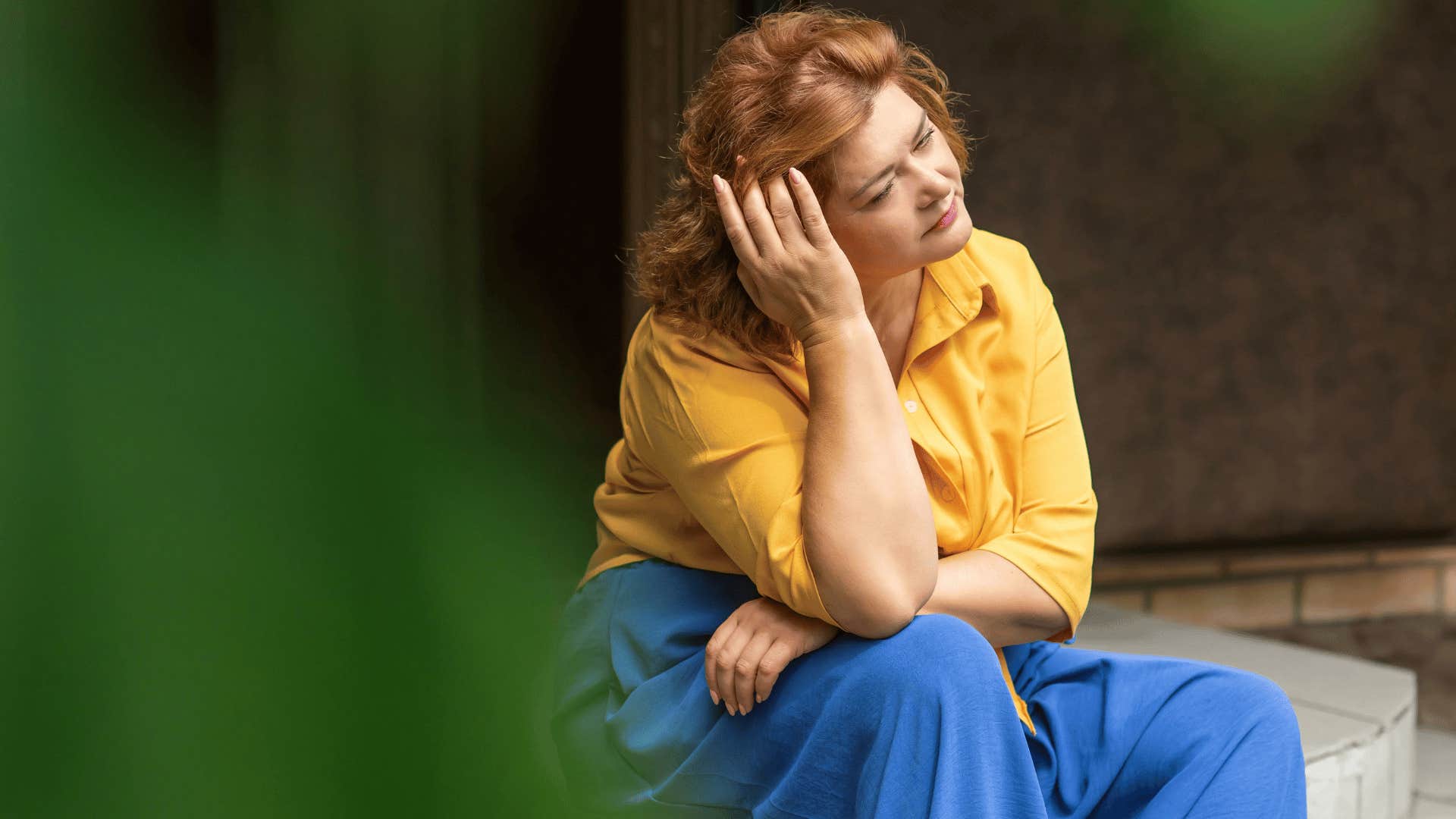10 Signs You Have Eldest Daughter Syndrome And It's Still Affecting You As An Adult
Being the eldest daughter has disadvantages well into adulthood.
 Lopolo | Shutterstock
Lopolo | Shutterstock According to psychologist Kate Esheleman PsyD, eldest daughter syndrome is a colloquial term that "refers to the attributes and experiences of firstborn children, and, in particular, daughters." Women who are a firstborn daughter may remember feeling a large amount of responsibility for their younger siblings, a perfectionistic pressure, and difficulty expressing needs.
Unfortunately, that feeling can affect firstborn daughters well into adulthood, where they suffer from anxiety and stress. They may still feel the need to take on everyone else's burden as a result of being parentified from a young age.
If you recognize the signs you have eldest daughter syndrome and it's still affecting you as an adult, you may have habits or behaviors that stem from your childhood. From resenting your family to not committing to your relationships, these glaring signs are an indication that something isn't quite right.
Here are 10 signs you have eldest daughter syndrome and it's still affecting you as an adult
1. You feel responsible for everything and everyone
 Evergeny Atamanenko | Shutterstock
Evergeny Atamanenko | Shutterstock
As the eldest daughter, you grew up having to bear the weight of it all. Whenever your siblings needed to eat or be dropped off at school, you were responsible for their well-being. In hindsight, this drained you as you spent countless nights catching up on a list of responsibilities.
According to a study published in the journal Children, kids tend to copy their parents' perfectionist tendencies. Considering your parents' high expectations, it comes as no surprise that you've struggled so much. In truth, because of your parents, you've developed the mindset that things will fall apart if you don't keep them together.
Now, as an adult, you feel responsible for everything and everyone around you. And as a result, your mental and physical health have suffered.
2. You have anxiety as a result of perfectionism
 fizkes | Shutterstock
fizkes | Shutterstock
If you have eldest daughter syndrome and it's still affecting you as an adult, you likely developed perfectionist tendencies which manifested into anxiety. In your parents eyes, you were expected to be perfect with zero flaws. You took on a majority of the responsibilities, which included becoming an adult yourself at a very young age.
A study published in the Internal Journal of Environmental Research and Health determined that parentified children tend to experience anxiety and depression. Considering that most eldest daughters are parentified from a young age, it isn't shocking that they'd have a large amount of anxiety. After all, being told that your family life would fall apart if you were less than perfect would certainly leave you greatly affected.
As an adult, you still experience that anxiety in your efforts to be perfect in your career and personal life. Unfortunately, this type of behavior leaves you feeling stressed and burnt out.
3. You overwork yourself to the point of exhaustion
 fizkes | Shutterstock
fizkes | Shutterstock
The need to be perfect has been ingrained in you from a very young age, causing you to tirelessly stay on top of your workload. You probably never allowed yourself to catch a break as you studied hard and worked even harder in your career or school, and even in the household growing up. In your mind as an eldest daughter, hard work pays off, so you did everything in your power to stay on track.
You likely don't mind pulling all-nighters or clocking in unpaid for two hours. You may also have a higher caffeine intake that you can't seem to kick. And though hard work is admirable, it's important to take a break from time to time; otherwise, you risk burnout. As a study published in PLoS One revealed, job burnout increases the risk of coronary heart disease, high cholesterol, type two diabetes, insomnia, and depression.
If you tend to overwork yourself, it's wise to stay grounded. Stand up for yourself and know your boundaries, whether that means not working extra hours at the office or finding healthy outlets like reading or exercising.
4. You don't know how to properly communicate
 Paula VV | Shutterstock
Paula VV | Shutterstock
Because you have eldest daughter syndrome, you probably don't know how to express yourself in a healthy way. You were constantly held to a high standard of perfection and were taught to hide your emotions. You were likely told that "other people have it worse than you" as you grew up, stunting your emotions as a result.
But it's important to get comfortable with being vulnerable and understanding how to express yourself. A study published in the Journal of Personality and Social Psychology found that emotional suppression leaves negative emotions intact, while decreasing positive ones. This leads to poor social functioning, as people struggle to be vulnerable with their loved ones.
As hard as it may be, find ways to slowly open up. Attending therapy or journaling might also be a great place to start.
5. You care too much about whether or not people like you
 Monkey Business Images | Shutterstock
Monkey Business Images | Shutterstock
If you're the oldest daughter in your family, you were likely taught to have good manners. Expecting you to be wise and responsible, your parents taught you that reputation means everything. This ideology instilled in you the belief that speaking kindly, never making mistakes, and being outgoing were the difference between success and failure.
As an adult, you now care entirely too much about what other people think about you. You'll go out of your way to help people if it means keeping your reputation positive, and you're eager to put yourself out there. In truth, you just don't want people to think less of you.
According to Harvard-trained clinical psychologist Debbie Sorensen, PhD, people-pleasers are prone to burnout as they aren't so great at setting boundaries. This leads to stress, which, according to a study published in Health Psychology, creates an increased risk of premature death by 43%. The point is that caring what other people think of you is likely a result of having eldest daughter syndrome.
6. You resent your family
 Gladskikh Tatiana | Shutterstock
Gladskikh Tatiana | Shutterstock
It's not easy to admit that your family may have caused you more harm than good in parentifying you. Growing up, you were probably taught that family meant everything and that to abandon your family was to risk being forever alone.
However, as you've grown older, perspectives have shifted. You're no longer a naive little girl; you're a grown woman in charge of her own destiny. Because of that, you can admit to having a build-up of resentment for your family and what they put you through.
They put a lot of responsibilities on your shoulders without once apologizing for burdening you. Now, as an adult, you struggle with finding ways to overcome these complicated emotions, and may have even thought about going no-contact with your family.
7. You have trouble committing in relationships
 Perfect Wave | Shuttetstock
Perfect Wave | Shuttetstock
As someone with eldest daughter syndrome, you struggle with intimacy in your romantic relationships. Due to your upbringing, you find it difficult to accept peace and vulnerability, which negatively affects you as an adult, especially when it comes to relationships, especially those that are romantic.
According to Keith M. Bellizzi, a professor of Human Development and Family Sciences at the University of Connecticut, your brain is hardwired to protect you, which means it guides you to do things that reinforce your beliefs. That might mean breaking off your relationship, and explains why you may find it difficult to commit to a partner, as your brain refuses to accept change for your own safety.
8. You put others before yourself
 fizkes | Shutterstock
fizkes | Shutterstock
Many people who have eldest daughter syndrome don't know how to take care of themselves. For you, you're so used to taking care of others that you believe the only way to be loved and accepted is by wearing yourself out. Unfortunately, this not only damages your physical health, but your mental health as well.
According to Johns Hopkins Medicine, chronic fatigue syndrome leads to joint pain, headaches, mental impairment, and even fainting. Self-care is especially important if you find yourself with symptoms like tiredness and fatigue, so find ways to incorporate caring for yourself into your daily routine. If you don't put yourself first, how can you truly expect to show up for others?
9. You don't have any friends of the same age
 Ground Picture | Shutterstock
Ground Picture | Shutterstock
Because you were forced to grow up too fast as the oldest daughter, facing endless responsibilities and duties, you never had time to meet or hang out with people your own age. Instead, you were too busy helping your parents around the house or being put in charge of making sure the home ran smoothly, leaving you little time for your own interests.
As an adult, you don't have any friends your own age. You may have found yourself unable to relate to their level of maturity or were drawn to older people. And as you grew up, that feeling never subsided. It may sound like a compliment when someone older than you calls you wise for your age, but it reflects how restricted your childhood was.
10. You don't feel good enough
 T.Den _ Team | Shutterstock
T.Den _ Team | Shutterstock
One of the most glaring signs you have eldest daughter syndrome and it's still affecting you as an adult is the fact that you never feel good enough. You may have never received praise or empathy from your parents. Growing up, they may have been overly strict with you and put your success before their unconditional love.
Now, as an adult, you hold the belief that nothing you do is ever going to be good enough. Whether it was your parents' constant criticism or scathing remarks, it made you feel less than, and that feeling carried over into adulthood.
People with eldest daughter syndrome struggle with their confidence as they make reckless decisions to feel whole or good enough. Oftentimes, these decisions create toxic relationships and environments. That's why it's important to work on yourself to rebuild your self-esteem, whether through practicing self-care or seeking out professional help.
Marielisa Reyes is a writer with a bachelor's in psychology who covers self-help, relationships, career, family, and astrology topics.

